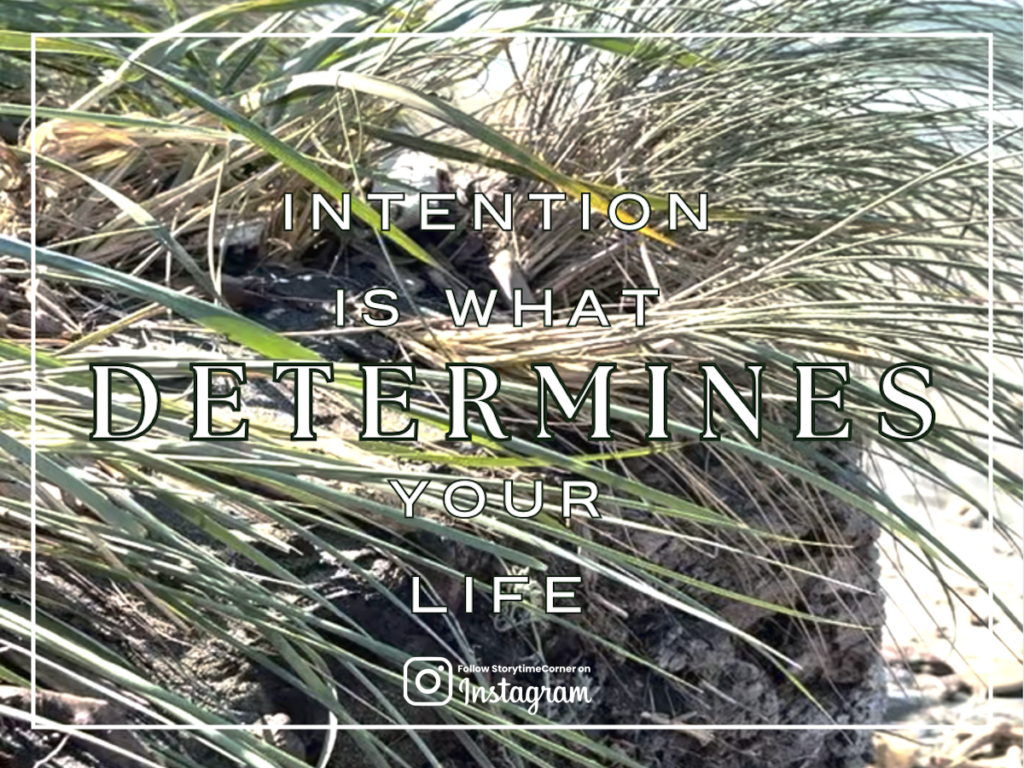Choosing Your Path: Defining Your Areas of Life
Hello Moms, and welcome back to Storytime Corner!
Today marks DAY 3 of our 365-Day Life Reset journey. If you missed DAY 2 – A Book of Promises, click HERE to check it out. Today, as we venture further into this transformative expedition, our goal is to chart our course by defining the areas of our lives that matter most to us. These areas will serve as the compass guiding us through the next 365 days.

Why Define Your Areas of Life?
You might be wondering why it’s essential to define these areas. Well, life is a vast and intricate tapestry, woven from various threads. By identifying the core aspects that make up our existence, we gain clarity, purpose, and direction. It’s like creating a map of our journey, highlighting the significant landmarks along the way.
Today’s Goal: Pick 10-12 Areas of Life
In the upcoming months of our “365-day Life Reset,”‘ these 10-12 Areas of Life will serve as the cornerstone of our journey. Not only will they guide our monthly mini resets, allowing us to dive deep into targeted aspects of our lives, but they will also be the lenses through which we analyze our current paradigms and set meaningful goals. These areas are the key to unlocking our true potential and crafting the lives we’ve always envisioned. But first, we have to pick them.
Here are the areas I’ll be focusing on here at Storytime Corner:
- Recreation: The activities that bring joy and recharge your spirit. These pursuits feed your passions, regardless of whether they generate income.
- Close Relationships: These are the bonds that truly matter—the people you feel closest to, whether related by blood or bound by friendship.
- Kids: If you have children, this area focuses on their well-being, nurturing their interests, and helping them prepare for adulthood.
- Life Direction: This encompasses your values, mission, roles, and personal identity. It’s about understanding who you are and where you’re headed in life.
- Health: Covering mental, physical, and emotional well-being, health is the cornerstone of a fulfilling life. It’s about nurturing your body and mind.
- Finances: From income and expenses to insurance, wills, savings, and retirement planning, financial stability is crucial for peace of mind and future security.
- Getting Started: A period of reflection and preparation, where you set your annual goals and declutter distractions that might hinder your progress.
- Environment: Our possessions, the places we choose to live, and their impact on our lives. It’s about creating surroundings that support our well-being.
- Memories: Journaling, self-reflection, and capturing life’s moments through photos and videos. It’s about preserving your journey and keeping your sights set on the future.
- Course Correction: A time to assess your progress, learn from your experiences, and adjust your plan as needed to stay on the path to your desired life.
- Career: This area encompasses your current income, career trajectory, and alignment with your passions. Your career should be more than just a job; it should be a source of fulfillment.
- Spouse: Nurture the romance, connection, and communication with your life partner. Ensuring you’re on the same path will make your journey together all the more rewarding.
Choosing Your Unique Areas
Remember, these are my 12 Areas of Life, and they may not fully encompass your unique journey. It’s vital to evaluate your life and select the areas that resonate most with you. Your map will be different from mine, and that’s perfectly okay.
To assist you in this process, below you’ll find a list of 135+ Possible Areas of Life to consider. Now, as we embark on this journey together, take a moment to reflect on which areas of life speak to you. These will be the pages, the chapters, and the characters in your personal story of transformation.
Let’s navigate these areas with purpose and intention, supporting each other every step of the way. Your unique path is waiting to be explored, and I can’t wait to see where it leads you.
Join me as we define our areas of focus and set the course for an extraordinary year of self-discovery and growth. Together, we’ll create the lives we truly desire.

Want to Learn More?
PICKING YOUR AREAS OF LIFE: There are many widely accepted frameworks and models for breaking down the analysis of ourselves into different areas of life. These frameworks provide a structured approach to understanding various aspects of our lives, setting goals, and achieving personal growth. Here are several ways to consider breaking down your self-analysis:
- Mental, Emotional, Social, and Physical: This is a common approach in the field of psychology and wellness. This breakdown allows individuals to better understand and address various aspects of their overall health and happiness.
- The Wheel of Life: The Wheel of Life is a popular tool in coaching and self-help. It divides life into different dimensions, often including areas like career, finances, health, relationships, personal growth, and more. Individuals rate their level of satisfaction or fulfillment in each area, allowing them to identify areas that may need improvement.
- The Six Dimensions of Wellness: This model, often used in wellness and counseling, breaks well-being down into six dimensions: physical, emotional, intellectual, social, spiritual, and occupational. It emphasizes the importance of balance and growth in each area for overall wellness.
- The Life Areas Assessment: This assessment helps individuals identify key life areas that are important to them. Common categories include family, career, finances, personal development, health, social life, and leisure. Users rate their level of satisfaction and set goals for each area.
- Maslow’s Hierarchy of Needs: Abraham Maslow’s hierarchy of needs is a well-known psychological theory that organizes human needs into a pyramid. It starts with basic physiological needs at the bottom (like food and shelter) and progresses to higher-level needs such as safety, love and belonging, esteem, and self-actualization. This model can help individuals assess where they are in terms of fulfilling their needs.
- The Self-Determination Theory (SDT): SDT is a psychological framework that focuses on intrinsic motivation and personal growth. It divides motivation into three key needs: autonomy, competence, and relatedness. Analyzing ourselves through this lens can help us understand our motivations and the sources of our happiness and fulfillment.
- The Values Assessment: This approach involves identifying and prioritizing personal values. Values can be related to areas like family, career, personal growth, adventure, and more. Understanding your core values can guide decision-making and goal-setting.
- The Life Roles Model: In this model, individuals assess themselves based on the various roles they play in life, such as parent, spouse, friend, employee, or community member. It helps people understand how they allocate their time and energy across different roles.
- The Strengths and Weaknesses Analysis: This approach involves identifying your strengths and weaknesses in different areas of life, such as communication skills, time management, emotional intelligence, and more. It can be a valuable tool for personal development and career planning.
135+ Possible Areas of Life
This list will hopefully spark ideas and insights that can assist you in selecting your own 12 areas of life that encompass your multidimensional self.
- Abundance
- Achievement
- Action
- Administration
- Adventure
- Aesthetic
- Appearance
- Appreciation
- Attitude
- Positive attitude
- Awareness
- Balance
- Maintaining work-life balance
- Belonging
- Body
- Budgeting
- Business
- Career
- Career goals
- Career growth
- Certainty
- Cognitive
- Collaboration
- Communication
- Community
- Community engagement
- Community involvement
- Completion
- Connection
- Contribution
- Contributing to a cause or movement
- Coping
- Coping skills
- Creativity
- Creative expression
- Creative pursuits
- Personal creativity
- Culture
- Cultural appreciation
- Cultural experiences
- Cultural exposure
- Curiosity
- Intellectual curiosity
- Dating
- Decision-making skills
- Education
- Emotional
- Emotions
- Emotional health
- Emotional well-being
- Entertaining
- Entertainment
- Entrepreneurship
- Environment
- Environmental responsibility
- Environmental sustainability
- Home and living environment
- Home environment
- Living environment
- Work environment
- Esteem
- Exercise
- Expression
- Artistic expression
- Personal expression
- Exploration
- Faith
- Fame
- Family
- Family time
- Family history
- Finances
- Financial
- Financial goals
- Financial health
- Financial planning
- Financial stability
- Fitness
- Flow
- Friends
- Friendships
- Fun
- Giving
- Charitable giving
- Giving back
- Giving back to the community
- Goals
- Goal setting
- Personal goals
- Gratitude
- Growth
- Personal growth
- Personal growth and learning
- Happiness
- Health
- Health goals
- Heart
- Helping others
- Hobbies
- Home
- Home decor
- Home improvement
- Home organization
- Hygiene
- Personal hygiene
- Identity
- Impact
- Innovation
- Intellectual
- Intellectual pursuits
- Interests
- Intimacy
- Investing
- Investment strategies
- Knowledge
- Leadership
- Leadership development
- Learning
- Learning opportunities
- Pursuing lifelong learning
- Leisure
- Leisure activities
- Life direction
- Path in life
- Love
- Marriage
- Meaning
- Mediation
- Meditation practices
- Mental
- Mental health
- Mentorship
- Mind
- Peace of mind
- Mindfulness
- Mindset
- Mission
- Nutrition
- Healthy eating habits
- Organization
- Paradigms
- Parenting
- People
- Home people
- Work people
- People in the wider community
- Personal development
- Personal development and growth
- Philanthropy
- Physical
- Physical body
- Physical fitness
- Physical health
- Physical wellness
- Physiological
- Play
- Politics
- Positive thinking
- Presentation skills
- Problem-solving skills
- Productivity
- Profession
- Professional development
- Professional growth
- Prosperity
- Public speaking
- Recreation
- Recognition
- Relationships
- Building and maintaining healthy relationships
- Coaching relationships
- Relationship building
- Relationships with family
- Relationships with family and friends
- Relationships with friends
- Relaxation
- Restful relaxation
- Religion
- Religious observance
- Rest
- Retirement planning and preparation
- Risk-taking
- Romance
- Romantic relationships
- Safety
- Personal safety
- Saving
- Security
- Personal security
- Self-actualization
- Self-care
- Self-cultivation
- Self-talk
- Sexual health
- Sexual well-being
- Significance
- Sleep
- Social
- Social connections
- Social relationships and connections
- Social justice
- Social responsibility
- Spiritual
- Spirit
- Spiritual growth
- Spiritual health
- Spiritual well-being
- Spirituality
- Stress management
- Style
- Surroundings
- Teamwork
- Time
- Time management
- Transcendence
- Travel
- Uncertainty
- Variety
- Volunteering
- Volunteer work
- Wealth
- Wellness
- Well-being
- Work
- Work-Life Balance
The choice of framework or model depends on individual preferences and goals. Some people may find certain frameworks more suitable or insightful for their specific needs and circumstances. Ultimately, the goal of these frameworks is to enhance self-awareness, promote personal growth, and help individuals live more fulfilling lives.

